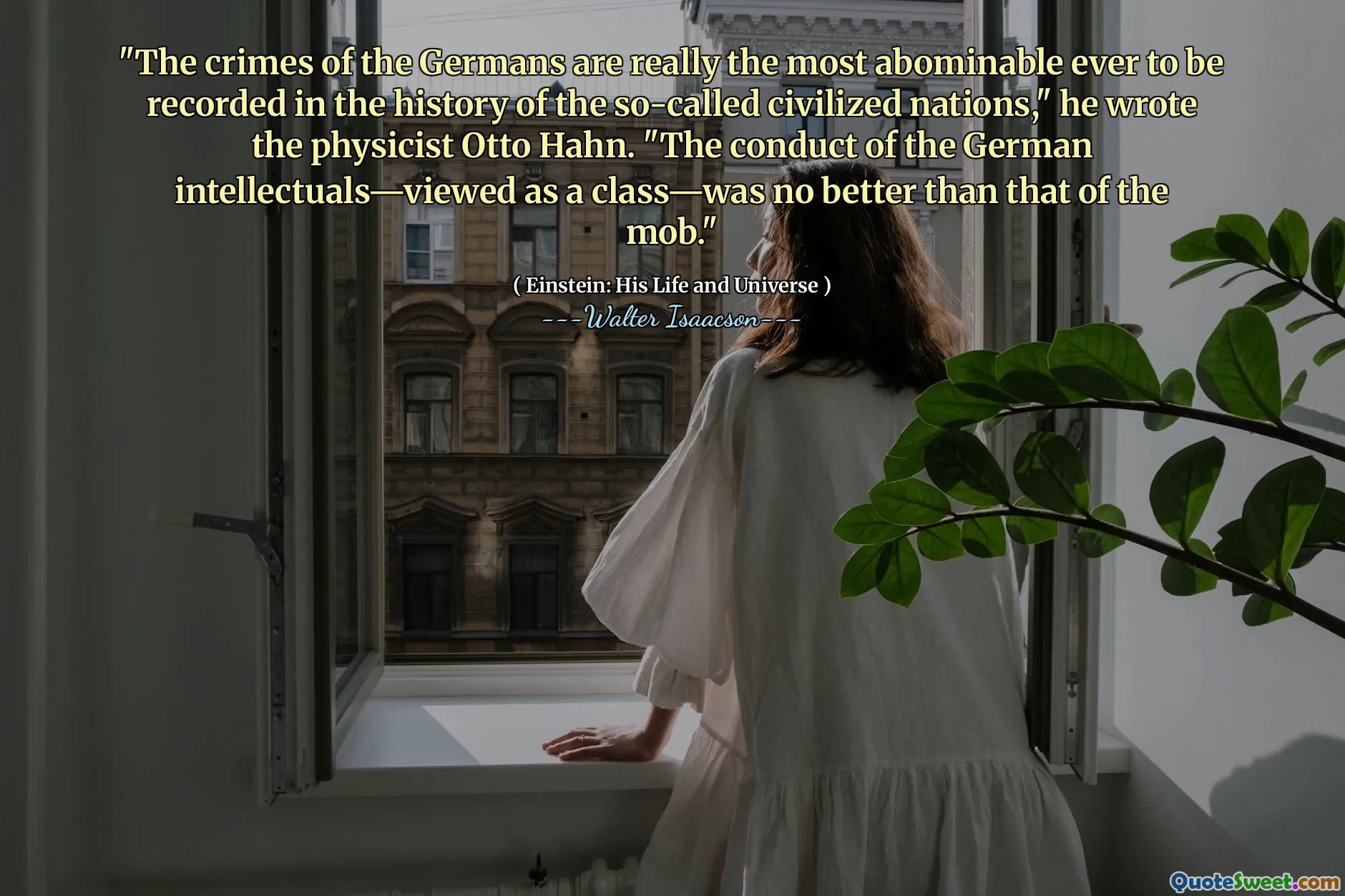
"The crimes of the Germans are really the most abominable ever to be recorded in the history of the so-called civilized nations," he wrote the physicist Otto Hahn. "The conduct of the German intellectuals—viewed as a class—was no better than that of the mob."
This quote, taken from the context of Albert Einstein's correspondence during one of the darkest periods in history, suggests a profound moral indictment of the German people and intellectual class during the era in question. It reveals Einstein's deep disappointment and anguish over the actions that contributed to immense suffering and the stain they left on humanity’s conscience. What is particularly striking about this quote is the equal condemnation of the intellectuals, who are often perceived as leaders of reason and morality, being described as no better than the uninformed masses. This challenges the commonly held notion that intellectuals inherently provide a moral compass or protect society from descent into barbarity. Instead, it underscores the dangers of collective complicity or passivity in the face of grave injustice. By highlighting that the crimes were “the most abominable ever to be recorded,” Einstein not only critiques specific historical events but also reflects on the failure of civilization when its factions abandon ethical responsibility. This reflection is sobering as it compels readers to think critically about the role of individuals within society—both leaders and followers—and their accountability during times of moral crisis. Einstein’s words ultimately serve as a cautionary reminder that reason and intellect must always be coupled with ethical courage and human empathy to prevent repeating the horrors of history.





